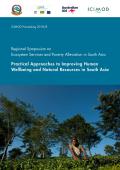
A ‘Regional Symposium on Ecosystem Services for Poverty Alleviation’ was held on 13–14 March 2018 in Kathmandu. The symposium highlighted the critical role of ecosystem interactions across spatial scales in delivering services, particularly to the poor who are highly dependent on natural resources. It further showcased potential ecosystem services governance pathways to achieving wellbeing for the poorest, and environmental sustainability through research and knowledge programmes in South Asia.
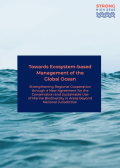
This policy brief explores how integrated ecosystem-based management in marine areas beyond national jurisdiction can be advanced at the regional level and how the BBNJ Agreement (“international legally binding instrument for the conservation and sustainable use of marine biodiversity in areas beyond national jurisdiction") can build on experiences in other legally binding agreements to strengthen regional cooperation, coordination and coherence.
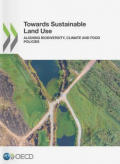
This report examines on-going challenges for aligning land-use policy with biodiversity, climate, and food objectives and the opportunities to enhance the sustainability of land-use systems. It looks at six countries with relatively large agricultural and forestry sectors and associated greenhouse gas emissions, many of which also host globally important biodiversity.
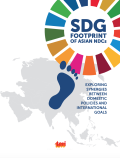
This report explores the linkages of Nationally Determined Contributions (NDCs) and the Sustainable Development Goals (SDGs) and captures if these linkages are evident in countries’ NDCs. It offers the first essential step in further strengthening institutional linkages at multiple governance levels for achieving SDGs and NDCs simultaneously and efficiently.
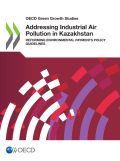
This publication shows that Kazakhstan’s environmental payments for industrial air pollutants, as currently applied, impede energy efficiency and pollution abatement with heavy-handed non-compliance responses and focus on rising revenues. They also add to the cost of doing businesses in the country, with limited environmental benefit. In the spirit of the Polluter-Pays Principle, much more regulatory reform on environmental payments are needed. This report provides guidelines for reform.
